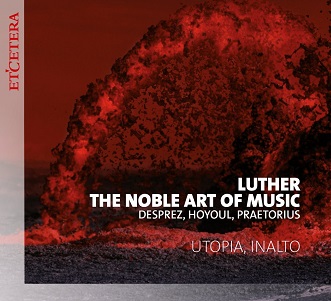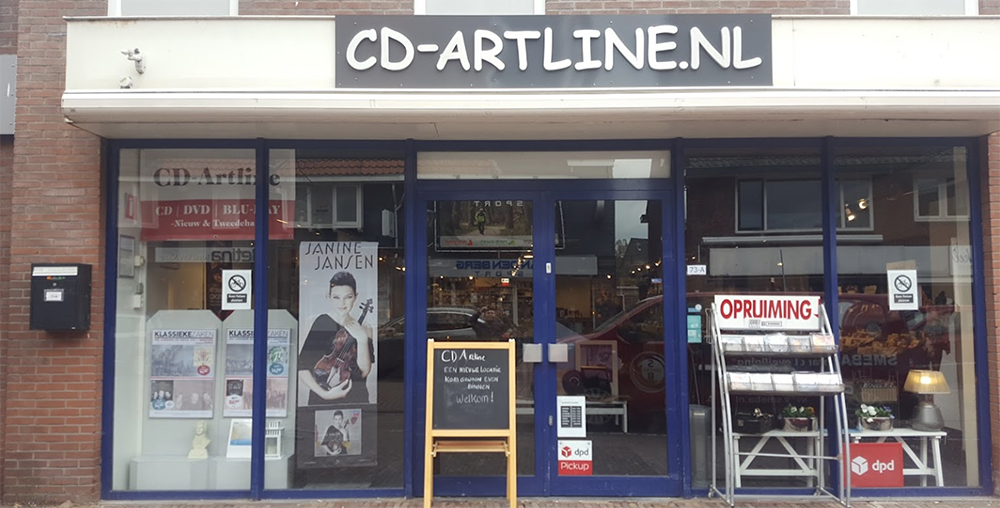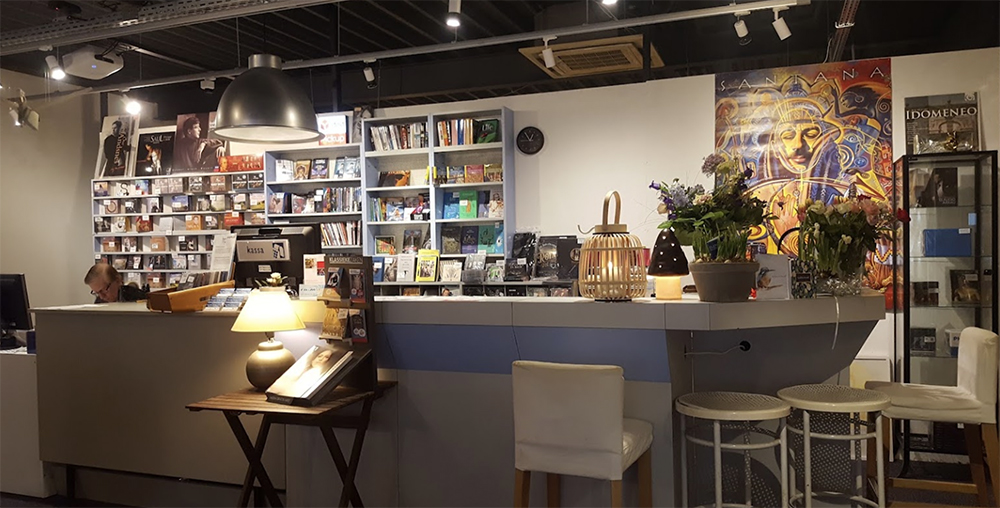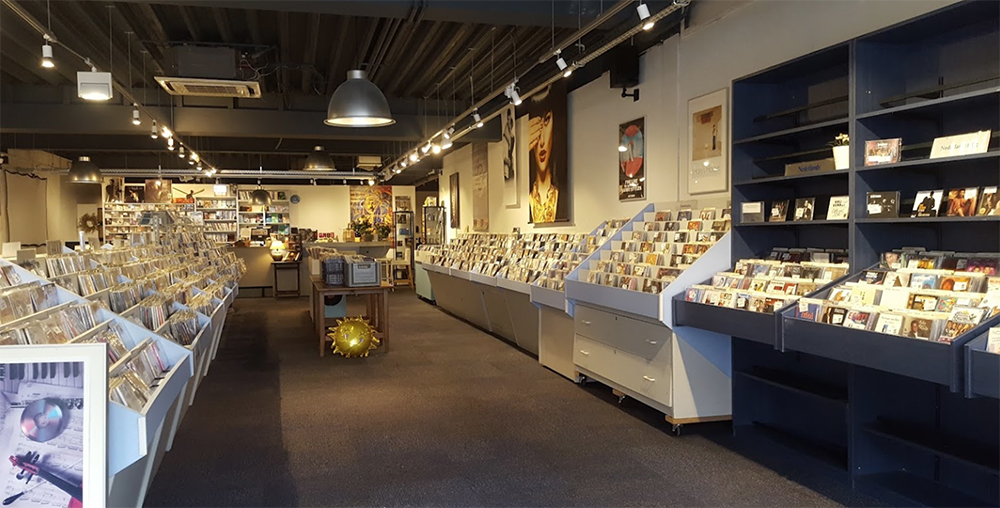U vond niet wat u zocht op deze website?
Neem dan zeker een kijkje op CDenDVD.nl: onze uitgebreidere website biedt meer dan 250.000 bestelbare artikelen aan.
- 8 Ball music (3)
- A-film (39)
- Accent (46)
- Alpha (451)
- Analekta (11)
- Aparte music (14)
- Arcana (114)
- Ariola (8)
- Arista (10)
- BBC legends (21)
- Berlin classics (16)
- BIS (1700)
- BNN vara (1)
- BR-klassik (117)
- Bridge (28)
- Brilliant classics (304)
- Buenavista (37)
- Carpe diem records (2)
- CBS records (17)
- Challenge (39)
- Chandos (216)
- Channel classics (165)
- Chateau De Versailles (92)
- CNR (17)
- Columbia (47)
- Columbia pictures (7)
- Columbia tristar (15)
- Concord records (2)
- CPO (102)
- Decca (106)
- Deutsche grammophon (172)
- DFW (93)
- Dino music (8)
- Document (1)
- Dog eat dog productions (2)
- East West records (3)
- ECM (271)
- Eigen beheer (29)
- EMI (146)
- Entertainment one (27)
- Epic (13)
- Erato (54)
- Etcetera records (309)
- Fidelio classics (2)
- Force music (2)
- Foreign media music (2)
- Fox film (42)
- Fuga libera (40)
- Gimell records (24)
- Gingerman bread records (2)
- Glossa (110)
- Harmonia mundi (245)
- Helios (64)
- Homerun records (1)
- House of knowledge (8)
- Hyperion (739)
- Indisc (1)
- Jingo (5)
- Linn records (90)
- Maxell (2)
- MDG (74)
- Mediarange (3)
- Mercury records (27)
- Modestus (1)
- Naxos (843)
- Newton classics (73)
- Ondine (104)
- Orange Mountain Music (40)
- Orchid classics (20)
- Pan Classics (19)
- Paradiso (21)
- Paramount (24)
- Parlophone (29)
- Pentatone (275)
- PHI (36)
- Philips (37)
- Piano classics (15)
- Polydor (38)
- Ramee (35)
- RCA (42)
- RCV (78)
- Signum classics (61)
- Smekkleysa (1)
- Sony bmg (3)
- Sony classical (76)
- Sony music (146)
- Sony pictures (47)
- Studio 100 (5)
- Supraphon (46)
- Syco music (4)
- Tacet (90)
- Topaz records (1)
- Trptk (24)
- Universal music (143)
- Universal pictures (67)
- Virgin (41)
- Vivat (4)
- Warner bros (88)
- Warner music (55)
- Zefir records (4)

LUTHER, THE NOBLE ART OF MUSIC
UTOPIA & INALTO
Componist: Desprez, Hoyoul, Praetorius
CD
1 disc(s) 12-03-2019
Vocaal / Koren
Verwachte levertijd (in NL): 1 - 3 werkdagen

| Staat: | Nieuw |
|---|---|
| Extra info: | Utopia & Inalto |
| Maatschappij: | Play it again Sam |
| Label: | Etcetera records |
| Barcode: | 8711801015774 |
| Suffix - prefix: | 1577 KTC |
Ensemble Utopia, InAlto
In a letter of 4 October 1530 to the chapel-master of the Bavarian court Ludwig Senfl (c. 1488/89–1543), Martin Luther famously proclaimed that, “I plainly judge and do not hesitate to affirm that except for theology, there is no art that could be put on the same level with music”. The position stands in stark contrast to some of his reformer contemporaries, who, disturbed by music’s power to affect the soul, all but banned it from the Church. Luther, on the other hand, sought precisely to capitalize on the qualities that music possessed in order to advance his reforms. For him, music was a powerful tool for private meditation and diversion, for strengthening communal ties, for spreading his message, and for public representation. Luther’s high evaluation of music was based in personal experience. As a schoolboy in Eisenach, he sang regularly, and at university he received training in speculative music theory as one of the seven liberal arts. He played the lute, and could compose. As a well-educated musician, he continually stressed the importance of music not only as a part of worship, but also as an essential part of general education. He once famously remarked that every schoolmaster must be able to sing, and he emphasized the importance of music education in his 1524 guidelines for the founding of schools (An die Ratsherren aller Städte deutschen Landes, daß sie christliche Schulen aufrichten und halten sollen). Accordingly, music played a central role in the school curriculum, and witnessed an enormous growth in Lutheran areas during the reformation. Luther himself planned a treatise on music, but this was never completed. The most emblematic musical manifestation of Luther’s reforms is undoubtedly the repertory of songs in the vernacular whose creation Luther initiated: the chorale, or hymn, repertory. With their German, poetic, and strophic texts, set to simple and memorable melodies, these chorales allowed the faithful to sing communally together as well as to express and share religious and spiritual ideas. They were employed privately, publicly, and for educational purposes.
anon.:
Vater unser im Himmelreich
Verleih uns Freiden
Bruck:
Aus Tiefer Not schrei ich zu dir
Cruger:
Aus Tiefer Not schrei ich zu dir
Despres:
De profundis clamavi
Douleur me bat
Pater Noster
Plaine de dueil
Victimae paschali laudes
Eccard:
Vater unser im Himmelreich
Hellinck:
Aus Tiefer Not schrei ich zu dir
Hoyoul:
Christ Lag in Todesbanden
Unser Vater in den Himmeln
Lasso:
Victimae Pascali Laudes
Othmayr:
Christ Lag in Todesbanden
Vater unser im Himmelreich
Praetorius, M:
Victimae Pascali Laudes
Aus tiefer Not schrei ich zu dir
Senfl:
De Profundis Clamavi
Walter, J:
Christ Lag in Todesbanden
Vater unser
"Met zijn 95 stellingen gaf Maarten Luther op 31 oktober 1517 het startsein voor de reformatie. Nu, vijfhonderd jaar later, is het vooral de muziek die is blijven hangen. In tegenstelling tot andere reformatoren was Luther geen tegenstander van muziek in de kerk. Hij beschouwde muziek eerder als de enige kunst die het woord van God kon benaderen. Zijn opvattingen gaven aanleiding tot een heel nieuw genre: het koraal. Een versobering van de grootse renaissancepolyfonie waarvan Luther slechts het werk van Josquin des Prez kon waarderen. De zangers van Utopia volgen met de cornetto’s en trombones van InAlto de wording van de protestantse kerkzang en maken de geschiedenis – van Josquin naar koralen als Aus tiefer Not schrei ich zu dir en Vater Unser im Himmelreich – hoorbaar en navolgbaar. Klanken die, zelfs als de religie geen enkele rol meer speelt, een snaar raken en die alleen al uit historische overwegingen in geen enkel muzikaal huis mogen ontbreken."
Klassieke Zaken Magazine 6-2017






